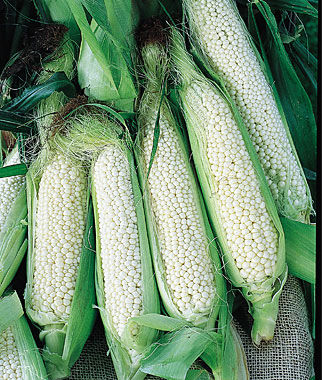Nature wastes nothing. Every molecule shed by an organism, from algae to elephant, is used by some other organism. The building blocks are all recycled, generation after generation. Given that nature seems to be pretty good at growing things, it seems wise for a farm to try to mimic nature’s efficiency.
Doing this in an urban environment means you have to look at the city as an ecosystem. What are the waste streams to be recycled? How can I best use these resources? Building these connections strengthens a city, making it both more productive and less wasteful–that is, more efficient–but it also strengthens it by make it more self-reliant and thus more resilient. If my only option for acquiring feed or bedding is to drive outside the city to a farm supply store (at a significant cost), any disruption in that supply chain is both devastating and likely. Maybe the shipment of the thing I need is late arriving to the store. Maybe I need something from that store but, due to scheduling conflicts, I can’t get there while the store is open. Maybe there’s simply a hiccup in my cash flow, and the store has no reason to extend me any credit.
But if I can count on a number of different businesses and households in my own neighborhood to supply me with these things from their own by-products, and they value me taking these things away as much as I value receiving them, then my suppliers and I have a mutual interest in my farm’s success. And since forming these connections tends to fall outside the normal conventions of commerce, it tends to be a lot more informal, and thus both more flexible and more personable. Nobody at Tractor Supply Company has ever called me up and told me they just got a shipment of chicken feed in and they’d like me to come pick some up, but I routinely get such calls from other stores around town urging me to pick up sawdust, lumber, vegetable scraps, and expired bread.
In an effort to forge connections that embed my farm into the local economy as well as reducing my costs by tapping into others’ waste streams, I’ve worked out a number of such deals. One of the most recent ones is an arrangement with a warehouse on the West Side. Every week or two, I haul away their pallets. Most of these aren’t your run-of-the-mill pallets, either. They’re heavy-duty things built with 10-foot 2x4s, nearly full sheets of particle board, and 4×4 posts. I get lumber for the cost of my labor and fuel, and the warehouse manager keeps the property manager happy and avoids paying to have the wood hauled to a landfill. (The lumber is presently waiting to be made into roosts, nest boxes, new poultry houses, and a wood shed. Small scraps will be used for firewood.)
This afternoon, I went to pick up the pallets. In order to fit more into the truck, thus saving fuel by reducing the number of trips I have to make, I break the pallets down on site. Today, this meant using a wrench to remove dozens of long screws, which took longer than I would have liked. It was dreadfully hot, and I finished all the water I had with me. I took a break to go get an iced tea, and when I returned, it had clouded up a bit. This was a welcome relief and I set back to work. A short time later, it started raining, lightly at first and then harder. I didn’t mind working in the rain, as it cooled me down. When it picked up, I just threw on a raincoat and kept working.
There I was, cranking away on these six-inch hex-head screws in the rain, when the hail began to fall. I was in the driveway of a loading dock behind a warehouse that was closed for the day. There was nowhere to run for cover but my truck, and I immediately thought of previous hailstorms that had shattered my neighbors’ auto glass. I also remembered warnings I’d heard against being inside vehicles when there are tornadoes about, so rather than getting into the dry, cushioned truck cab, I dove for cover underneath the back of the truck. At first, I just lay under the tail gate, my legs sheltered by the ramps and a piece of particle board I had propped against the tailgate like a lean-to. When the particle board blew down and the truck started shaking in the wind, I crawled farther underneath. The hail went from pea-sized to dime-sized, the truck continued rocking, and I watched sheets of water cascade off the warehouse roof as lightning lit up the sky. At one point, there was a bright, sharp crack that made the outdoor lights flicker, and I could have sworn I felt a shock at the point where my forearm was touching the truck chassis. I suspect I just jumped and bumped a nerve, but it was alarming. I crawled further still, to a point where I could be well sheltered without touching the truck at all. I grasped the hood of my coat with both hands to hold my head up out of the water that was streaming under the truck, and lay like that on my back for probably about 20 minutes until the hail had stopped and the wind had diminished enough to make me think there probably weren’t going to be any tornadoes popping up.
Cold now, I climbed into the cab and phoned my wife, who was at home looking at the weather radar on her computer. She said that the worst of the storm was past me, but that it would keep raining steadily for about another hour. I’d made a huge mess in the loading dock driveway tearing pallets apart. I couldn’t very well just leave it with all these bits of wood lying around bristling with nails. But I wasn’t about to go back out and work with lightening still hitting all around. Besides that, the truck’s windshield wiper motor has been going out. I decided I was best off just waiting for the storm to pass. I dozed off, half expecting to be woken by a policeman wanting to know why I was camped out behind this warehouse, but it never happened. When the storm had become a sprinkle, I set back to work. I finished loading all I could, made neat stacks of the rest, got some fast food, and drove back to Woodland. By the time I unloaded the wood, tended the chickens, and got back home, it was 11:45. Looks like I missed my opportunity to pick mulberries this evening.
So…to the man who saw the mulberries I had at Easton on Thursday and asked whether I’d also have them at Clintonville this Saturday–I apologize. I didn’t pick berries because I was busy hiding under a truck and then taking a nap in my pursuit of free lumber. I suppose I could get up at first light and try to pick some in the morning, but in all likelihood, the storm knocked off any ripe ones. That’s the belief I’m going to stick with while I go get a few hours sleep before I have to get up for the market. Good night.


